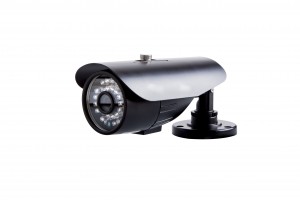
Police body cameras are popping up across Minnesota and the United States, but not a lot is known about the technology. Today, we share five facts about police body cameras.
1. Becoming the norm – As we mentioned above, an increasing amount of police precincts are adopting the body cameras. Michael White, a professor at Arizona State University’s School of Criminology and Criminal Justice, estimated that 25 percent of police departments are using the technology or are planning on instituting the cameras in the near future. White believes that figure will jump to 33 percent or even as high as 50 percent within the next year.
2. The cameras are costly – Your Canon Rebel may have only cost $80, but police body cameras have a much larger price tag. Research conducted by the Police Executive Research Forum found that agencies spent between $120 and $2,000 for each camera. For example, the Mesa Police Department just spent $67,000 on 50 new cameras. There are also additional fees for video storage and expert analysis.
3. No long term studies – Because of their relatively recent inception, there really aren’t any long term studies on the effectiveness of the body cameras. A short term study in California found that allegations of police misconduct and false claims dropped in the months after the department adopted the cameras, but not much is known about their long term effectiveness. Researchers also want to determine how effective the video evidence is in the court of law, in terms of guilty verdicts.
4. Some disagreement over recording procedures – Since the cameras don’t constantly record, there has been some debate over when they should be turned on. Some departments want their officers to turn on their cameras during every encounter, while some officers think they should only be recording when a citation or arrest is likely. The American Civil Liberties Union believes all encounters should be recorded in order to avoid any possible tampering.
5. Minnesota ahead of the curve – While some departments are discussing the cameras, many Minnesota precincts are early adopters. Departments in Burnsville, Duluth, Gilbert, Farmington and Minneapolis have all begun outfitting their officers with cameras. Assuming the cameras are successful in reducing false claims and instances of police brutality, it seems likely that more Minnesota cities will join the movement.
Related source: AZ Central





